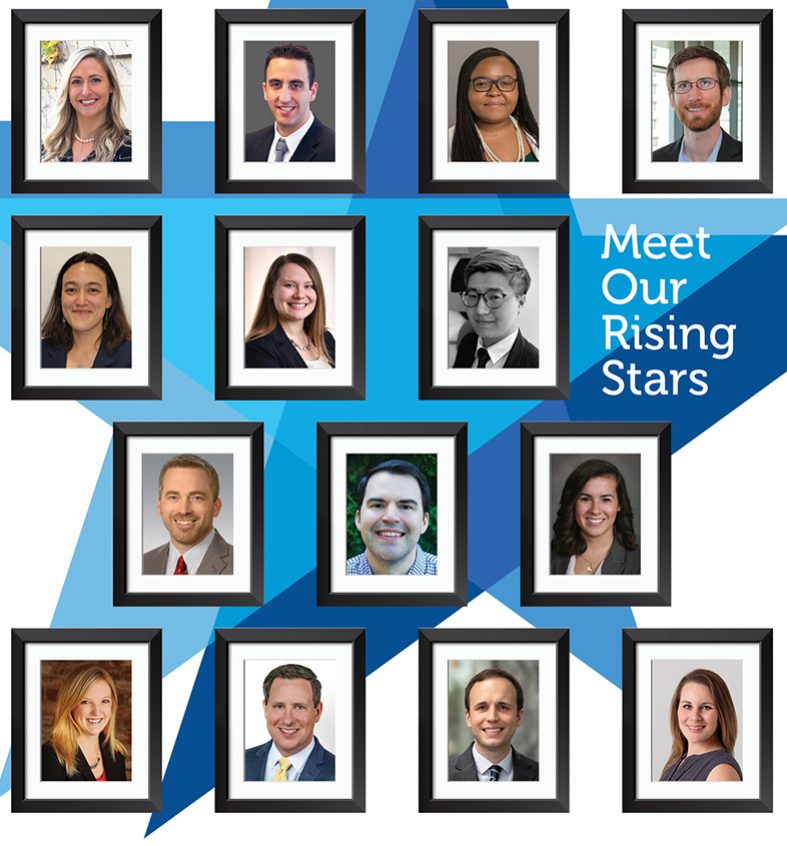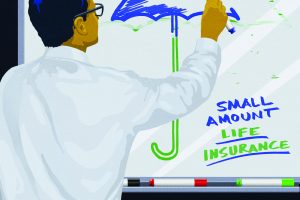Young actuary leaders represent the future of the actuarial profession, bringing innovation, new perspectives and skills, and an embrace of leadership roles to guide it into the future. They are essential to the continuing success and growth of the U.S. actuarial profession.
Through national recognition by the Academy, the new Rising Actuary Award encourages the development and emergence of actuarial leaders 35 years old and younger or credentialed 10 years or less. The inaugural class of award recipients will be honored at the Academy’s Envision Tomorrow: Annual Meeting 2022 on November 2–3.
Contingencies spoke with this year’s recipients about career advice, their mentors, generational differences in the workplace, and more. Based on their responses and the insights shared, the actuarial profession is in good hands—and the Academy is proud to recognize this year’s inaugural class of Rising Actuaries as a representation of what the future holds for the profession and those we serve.
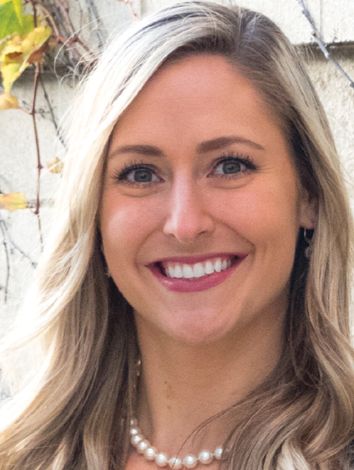
Chelsea Adler, MAAA, FCAS
Senior State Product Manager and Actuary, Root Inc.
What was your reaction when you heard you were among the inaugural class of Rising Actuary Award winners?
I was honored and shocked. I had never heard of an award like this and did not know how I had been nominated. Upon reading more on the award, it seems to align with my passion to raise awareness of the profession and invest in the next generation of actuaries. I’m humbled and grateful to be recognized in this way.
Do you have a mentor? Tell me about them.
I have many. The first is my father. He truly lives out the State Farm “good neighbor” motto. I am so passionate about insurance because I witnessed the way he got to know his customers on a personal level and made it a priority to be there for them during difficult times. He is the greatest role model and inspiration in my life.
I’ve also been blessed with mentors in college and in my professional life who have invested in my growth and encouraged me in my faith. There are too many to name, but they all have a way of making me feel like the most important person in the world when I am with them. I can only hope to encourage others the way they’ve encouraged me.
What is one piece of advice that you always give actuaries just starting in their careers?
I would encourage actuaries early in their careers to consider what matters most to them and to stay grounded in those priorities. It’s far too easy in our fast-paced world to lose sight of why we work hard. Especially early on, actuaries need to make sacrifices to progress with exams and position themselves for success in the workplace.
It’s important to remember that our careers are a marathon, not a sprint. There is so much potential beyond exam years. I would encourage actuaries to be open to possibilities. It’s likely that your career path will look different than you originally expected—and that can be a great thing! Take risks and try new things. You might be surprised by the roles that end up being the most fulfilling and life-giving!
Do you see many differences in how different so-called generations—Millennials, Gen Xers, Baby Boomers—go about their work tasks?
Absolutely. We are all shaped and influenced by the world we grew up in. It’s only natural that we would approach work and other aspects of our life in different ways based on what we’ve been exposed to and what we’ve seen work best in our experience.
There’s lots of talk about what younger actuaries can learn from experienced actuaries. What about the other way around—what can older folks learn from the younger generation?
We can all benefit from learning one another’s stories and seeking to understand their perspectives. I think the only way we can work effectively with one another is to pursue this understanding, both younger and older generations. We all have something to learn.
Specific to this question, I would encourage older generations to learn what younger generations value most. Once you know what their priorities are and what makes them tick, it’s easier to communicate and align incentives around what interests and inspires them.
Does the Academy do a good job in speaking for all actuaries? How could the Academy improve in this regard?
From my perspective, the Academy provides a well-rounded and unbiased perspective of actuaries from many different practice areas. I think there are opportunities to further promote the profession and its benefits to younger generations as well as with all types of companies beyond the traditional roles we see actuaries working in today.
What’s the biggest benefit you’ve derived from your Academy membership?
I am grateful for the standards the Academy has set with respect to professionalism. I have benefited from the guidance, webinars, and actuarial research the Academy has provided. I also recently discovered the Actuary Voices podcast and have really enjoyed hearing the stories and advice from actuaries across a variety of industries and experiences.
Finally, will we see you at Envision Tomorrow: Annual Meeting 2022?
I would love to be at the Academy’s Annual Meeting in person but will be unable to join this year. I have no doubt it will be a great event! I am honored to have been invited and hope to be at future events.
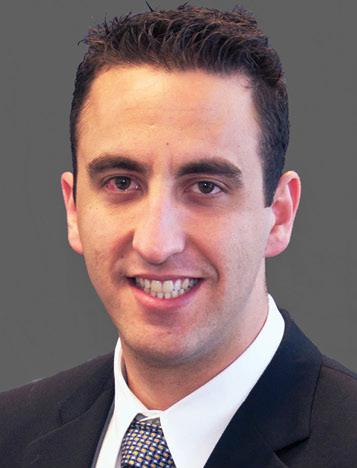
Haitham I. Aly, MAAA, FSA
Consulting Actuary, Milliman
What was your reaction when you heard you were among the inaugural class of Rising Actuary Award winners?
Wow! I felt overwhelmingly proud and thrilled, but most of all, thankful. Being recognized by an industry of your peers is one of the greatest achievements anyone could attain. The fact that I was both nominated and selected for the inaugural class was an accolade I would never imagine achieving. I am beyond grateful to the Academy for this opportunity and to all my colleagues and professional acquaintances for presenting me with continued possibilities for advancement and growth.
Do you have a mentor? Tell me about them.
I have had many mentors over the years who have helped influence my life and professional growth. Of these mentors, I think my colleagues in the Atlanta health office of Milliman (both past and present) collectively have stood out as great models as actuaries and professionals. They have promoted excellence, quality of work, and the importance of providing value while understanding the importance of balancing your personal life as well. I wish I could list them all here!
What is one piece of advice that you always give actuaries just starting in their careers?
Ask questions and continue to stay curious. Those are the two most valuable qualities that helped me progress throughout my career. Asking thoughtful questions leads to an intimate understanding of your work and ultimately can evolve to deep subject-matter expertise. Constant curiosity will truly allow you to feel fulfilled with the work you do.
Do you see many differences in how different so-called generations—Millennials, Gen Xers, Baby Boomers—go about their work tasks?
The big attraction to the actuarial profession for me was the ability to work closely with seasoned actuaries in the industry to understand some of the core actuarial concepts. As younger actuaries begin to enter the profession and the nature of the businesses evolve, it will be increasingly more important that more seasoned actuaries embrace change and adapt to new ideas, philosophies, and technologies. All generations can learn from each other and help grow the profession positively.
There’s lots of talk about what younger actuaries can learn from experienced actuaries. What about the other way around—what can older folks learn from the younger generation?
Younger actuaries can teach more experienced actuaries the importance of technology and predictive modeling in our work. There has been a recent evolution to predictive analytics in the actuarial profession that, I believe, should be encouraged and promoted. Younger generations that grew up with technology at their fingertips are poised to be industry leaders in this future development.
Does the Academy do a good job in speaking for all actuaries? How could the Academy improve in this regard?
The Academy does a great job in speaking for all actuaries using surveys, elections, and public forums. One improvement could be devising a committee or networking event tailored to young actuaries—something to help promote their ideas and share interests.
What’s the biggest benefit you’ve derived from your Academy membership?
The biggest benefit from my Academy membership was the opportunity to volunteer and help mold the future of health care in a positive way. The Academy offers many volunteer opportunities to be involved in various committees and discipline-specific teams. I love being a part of a great group that is tasked with helping mold the future of the profession.
Finally, will we see you at Envision Tomorrow: Annual Meeting 2022?
Absolutely! I wouldn’t miss it. Looking forward to receiving this award and representing myself, my company, and the Academy proudly.
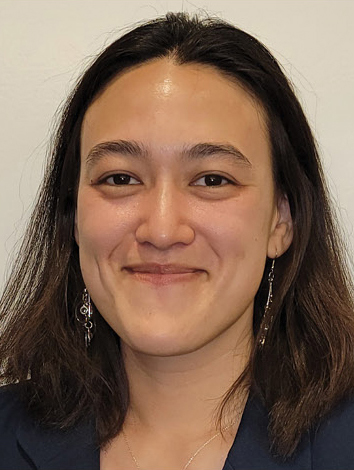
Laura Bass, MAAA, FSA
Principal, Mercer
What was your reaction when you heard you were among the inaugural class of Rising Actuary Award winners?
Grateful. I first had the pleasure of learning that Yixuan, whom I nominated, was winning the award. I was elated for him. It was a couple hours later when I learned that I was also winning the award!
Do you have a mentor? Tell me about them.
No, I don’t currently have anyone I would call a mentor. However, my first manager is my professional role model. Sandy was a non-actuary leading a team of non-actuaries within the actuarial department. She got me into the actuarial program and supported my exam progress. She took an interest in me as a person, always spent plenty of time explaining things to me, and thoughtfully assigned me the types of projects that I enjoyed. I learned a lot from her about the industry and good work like when to dig deeper or develop alternative solutions. I knew I was lucky to have such a wonderful first manager. I still use what Sandy taught me every day.
What is one piece of advice that you always give actuaries just starting in their careers?
Please do not be afraid to ask questions or share your thoughts.
When I was in elementary school, a classmate said something embarrassing one day and everyone laughed. I tried to remember who and what was said but I could not recall after just a couple weeks. That is when I realized that other people will not remember the embarrassing things I ask or say.
I still get nervous but I do my best to overcome it and participate in discussions. I learn from every interaction, whether my idea is right or wrong, regardless of if my question is thoughtful or silly. I believe there is so much upside to be gained from asking and sharing, with very little downside in the form of potential, short-lived embarrassment. I believe this perspective and approach has maximized my learning and growth.
Do you see many differences in how different so-called generations—Millennials, Gen Xers, Baby Boomers—go about their work tasks?
My answer is unlikely to be unique or surprising: I recognize the spectrum of people and see that older generations skew toward pen, paper, and in-person meetings while younger generations skew toward remote, asynchronous work. I prefer the latter but I strive to be flexible to meet the needs of unique projects and people.
There’s lots of talk about what younger actuaries can learn from experienced actuaries. What about the other way around—what can older folks learn from the younger generation?
Again, my answer is unlikely to be unique or surprising: technology and (social) terminology.
Technology: Predictive analytics is gaining traction in companies and our education systems. I do believe it and other technology is part of the future. I even recall the article in the Jan/Feb 2022 issue of Contingencies that mentioned Warren Buffett’s Berkshire Hathaway acknowledges the value of technology in car insurance and how they were late to that game. Broadly speaking, the younger generations who grow up exposed to the emerging technology are going to lead the way. I’d like to learn these new technologies for myself, or at least support younger actuaries in their studies.
Terminology: DE&I is gaining traction at companies and a credit of bias CE has been added to qualification requirements. I do believe pronouns and similar considerations are meaningful to our work—at a minimum for the sake of building relationships with coworkers and clients. I have an LGBTQ & Sexuality Studies minor from the University of Michigan and, even though I might not use that information in my day-to-day analytical work, I do believe I am a better person for having educated myself.
Does the Academy do a good job in speaking for all actuaries? How could the Academy improve in this regard?
Yes, I think the Academy does a good job speaking for all actuaries. I appreciate having a central organization in the United States that works on multidisciplinary and cross-disciplinary projects with people from across the country and of different ages.
What’s the biggest benefit you’ve derived from your Academy membership?
I appreciate the webinars and also the Actuarial Board for Counseling and Discipline (ABCD). I have reached out to the ABCD for guidance and found it immensely helpful to have someone to speak to confidentially.
Finally, will we see you at Envision Tomorrow: Annual Meeting 2022?
Unfortunately, I will not be attending the annual meeting. When I don’t have my actuary hat on, I am a shepherd with a hobby farm of sheep, ducks, foster kittens, and two border collies to help me run it all. This year, I will be in a sheepherding competition instead of at the annual meeting.
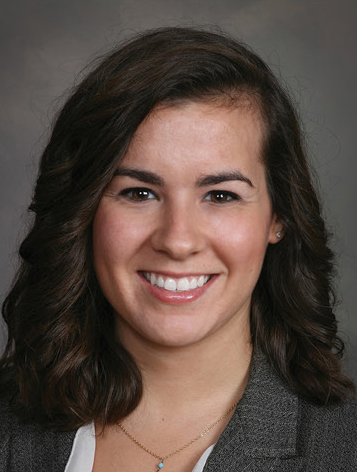
Taylor Krebsbach Davis, MAAA, FCAS, CERA
Senior Director, FTI Consulting
What was your reaction when you heard you were among the inaugural class of Rising Actuary Award winners?
I was honored! It felt great to be recognized by the actuarial community among my peers.
Do you have a mentor? Tell me about them.
In consulting, I am lucky to have exposure to a number of mentors. For many years, Lauren Cavanaugh took me under her wing. I enjoy being stretched intellectually, and Lauren has high expectations for her mentees, so we are a great match. My mentor encouraged me to give back to the actuarial community through volunteer work and always supported my wanting to further my education and knowledge.
What is one piece of advice that you always give actuaries just starting in their careers?
Learn as much as you can. You truly never know where you could end up in the actuarial field. At my current position, I work on engagements that I could have never dreamed of when I learned about being an actuary. Also, the importance of studying and time management as you get through the exams.
There’s lots of talk about what younger actuaries can learn from experienced actuaries. What about the other way around—what can older folks learn from the younger generation?
The younger generation appears to be much better positioned for data analytics as the industry changes.
What’s the biggest benefit you’ve derived from your Academy membership?
The relationships I formed on the various committees I serve are irreplaceable. I love connecting to other actuaries who I might never have met in my career. I have learned a great deal about others’ working styles and the importance of working in a team.
Finally, will we see you at Envision Tomorrow: Annual Meeting 2022?
Yes!
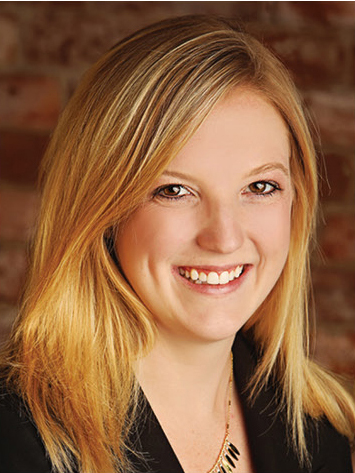
Allison Fehnel, MAAA, ASA
Senior Manager, CVS Health
What was your reaction when you heard you were among the inaugural class of Rising Actuary Award winners?
I was humbled to have been nominated and selected for this award! It is truly a once-in-a-lifetime feeling. I am grateful for our incredible actuarial community and honored that my co-workers and the community felt I was deserving of this award.
Do you have a mentor? Tell me about them.
As I was beginning my actuarial journey, I quickly realized that I needed to surround myself with people from all walks of life with different perspectives in order to have a strong support system. I have a small group of mentors—each continues to play a critical role in my exam journey, professional career, and my personal growth. I genuinely appreciate their support, advice, and perspective.
What is one piece of advice that you always give actuaries just starting in their careers?
Continue to challenge yourself by finding ways to deliver a consistent, high-quality work product that is enhanced by simple, meaningful, and action-oriented conclusions.
Do you see many differences in how different so-called generations—Millennials, Gen Xers, Baby Boomers—go about their work tasks?
Passion is timeless, and I believe this is what permeates all generations and all working styles. A passion to combine desire and drive is a unifying and integrating force.
There’s lots of talk about what younger actuaries can learn from experienced actuaries. What about the other way around—what can older folks learn from the younger generation?
Technology is changing the way we all do our jobs. To stay competitive and deliver an excellent customer experience, knowledge transfer from younger to older actuaries and vice versa is essential to ensure we all progress together.
Does the Academy do a good job in speaking for all actuaries? How could the Academy improve in this regard?
Having recently joined the Academy, I have so far experienced that all types of actuaries have an opportunity to voice their opinions and thoughts given our fast-changing environment and industry.
What’s the biggest benefit you’ve derived from your Academy membership?
I have met new people while also widening my knowledge base and identifing new opportunities to continue growing both professionally and personally.
Finally, will we see you at Envision Tomorrow: Annual Meeting 2022?
Yes, I am looking forward to being able to join in person! See you there!
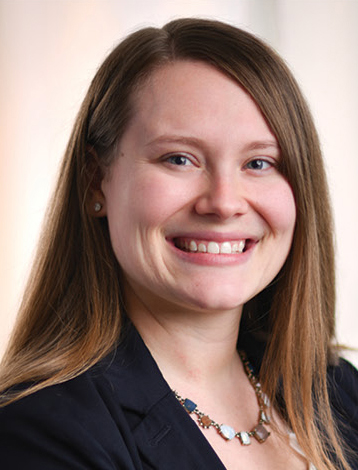
Fallon Harrell, MAAA, FSA
Principal, Mercer Government Human Services Consulting
What was your reaction when you heard you were among the inaugural class of Rising Actuary Award winners?
I was very surprised and grateful. I know that it is quite an honor to be recognized in the actuarial community—such a passionate, ambitious group of people. And I think so highly of those who nominated me. The acknowledgment of all the hard work means the world to me.
Do you have a mentor? Tell me about them.
Yes, I am lucky to have had a handful of incredible mentors since the start of my career. One of my mentors has been with me since Day 1, essentially. I have worked with her directly on projects and she has served as my manager for many years. She has been a constant advocate for me in navigating my career, including when to take a risk to further my development and when it made sense to take a step back for work/life balance reasons. In addition to general career advice, she also coached me through my first time in a junior actuary role and taught me many lessons I still draw on today.
What is one piece of advice that you always give actuaries just starting in their careers?
Be sure to prepare appropriately. This includes preparation for the obvious things like exams and presentations, but this is also so important for internal and less formal meetings. Do the extra practice problems, research the meeting topic, bring questions, and come with ideas whenever possible. I have never regretted over-preparing.
Do you see many differences in how different so-called generations—Millennials, Gen Xers, Baby Boomers—go about their work tasks?
I think the later-born generations are more comfortable in this hybrid world and prefer to communicate via email or messenger, while the earlier-born generations prefer to hop on a video call and hash it out face-to-face. It’s important to find the right balance.
There’s lots of talk about what younger actuaries can learn from experienced actuaries. What about the other way around—what can older folks learn from the younger generation?
I think there is always some benefit to getting a fresh take on things. Younger generations can bring new, innovative ideas. In particular, I think our younger, tech-savvy generations may be able to help us overhaul old processes and complete tasks in a more efficient manner.
What’s the biggest benefit you’ve derived from your Academy membership?
I have greatly appreciated the content that is developed by Academy workgroups and the webinar trainings that are held on a variety of topics. These have helped me stay up to speed on industry hot topics and meet continuing education requirements.
Finally, will we see you at Envision Tomorrow: Annual Meeting 2022?
Yes, I plan to attend.
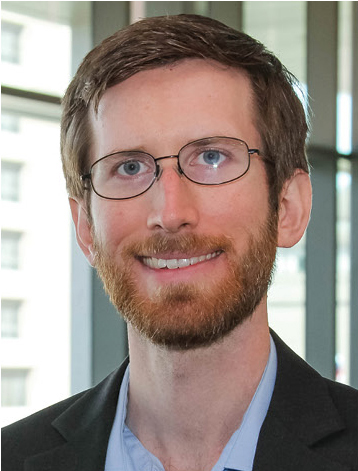
Eric Hintikka, MAAA, ACAS
Actuary and Team Lead, Texas Department of Insurance
What was your reaction when you heard you were among the inaugural class of Rising Actuary Award winners?
I was so pleasantly surprised and felt honored. I didn’t realize that I had been nominated for the award, so the news came out of the blue for me. What a nice email to receive!
Do you have a mentor? Tell me about them.
I don’t have a sole formally designated mentor, but many people at the Texas Department of Insurance with more experience than me have taken on unofficial mentoring roles. One of my favorite things about working here is that my colleagues are generally very happy to take time out of their busy days to talk through actuarial issues with me (or with others), even when the topic doesn’t directly relate to anything they’re currently working on. Making time for an open transfer of information and ideas can be hugely beneficial for all parties involved, and often ends up paying dividends in unexpected ways. It’s so much more efficient to talk through a difficult concept with colleagues who might have relevant experience than to try to struggle through it all alone!
What is one piece of advice that you always give actuaries just starting in their careers?
Keep a constant eye out for improvements that you can make to recurring processes. Over time, even relatively simple tasks can eat up a deceptively large amount of resources if they need to be repeated regularly. Finding ways to make them more efficient—even incrementally!—can be a great way to make an outsized impact. That’s not to say that one-time projects are unimportant. But it’s worth putting special attention on the ones that repeat. I suspect most people, myself included, have a bias toward undervaluing the future costs associated with recurring time sinks, so opportunities often exist to fruitfully invest time now to save yourself and others from headaches later. This also applies to documenting your work, your code, and your thought processes. Future you will be grateful for anything you do to make it easier to remember key information that present you might be tempted to (incorrectly) assume you would never forget!
Do you see many differences in how different so-called generations—Millennials, Gen Xers, Baby Boomers—go about their work tasks?
Yes, but I think the within-group variance is high relative to the between-group variance.
There’s lots of talk about what younger actuaries can learn from experienced actuaries. What about the other way around—what can older folks learn from the younger generation?
As we all know, the environment in which an actuary completes their basic education is constantly changing. As a result, the tools, techniques, and mindsets in which the younger generations of actuaries spent their formative years immersed are likely to be different from those to which the older folks are most accustomed. For example, it seems to me that programming languages like R and Python may have supplanted Excel for much routine work among many younger actuaries, but perhaps not to the same extent among older ones. I think that both groups should strive to understand the strengths of the other’s default approaches.
In particular to the question, I think actuaries from the older generations could benefit from investing time to learn the basics (or beyond) of the tools that their younger colleagues might be inclined to use to get things done. That’s not to say that the shiniest new approach is the best way to go for every task. Experience should play an important role in distinguishing between strategies that might be superior only in theory versus those that work best in the real world. But I think it’s important for leaders to take seriously the possibility that that which was previously optimal may no longer be. (In my experience, they typically do.) The input they can get from younger people who may be more natively adapted to newer technologies is valuable. That said, so too is the experience of the more tenured actuaries who have a long history of getting the job done well using tried-and-true methods.
Does the Academy do a good job in speaking for all actuaries? How could the Academy improve in this regard?
Not being “all actuaries” myself, I hesitate to speak for them! But in all seriousness, my impression is that it does. It seems to me that the Academy produces a great volume of objective, nonbiased, carefully vetted, and useful information that any actuary could benefit from tapping into.
What’s the biggest benefit you’ve derived from your Academy membership?
Since I became a member, I’ve received the Academy’s “This Week” newsletter every Friday and have found it super helpful for staying current with recent developments, upcoming webinars and other CE opportunities, public policy issues to be aware of, and other happenings. It can be tough to stay on top of everything since there’s always so much going on, so it’s nice to have an overview laid out for me in a timely and easily digestible manner every week.
Finally, will we see you at Envision Tomorrow: Annual Meeting 2022?
Yes. I’m looking forward to it!
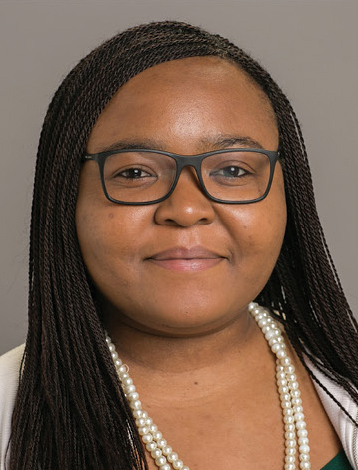
Maambo Mujala, MAAA, FSA
Corporate Vice President & Actuary, New York Life Insurance Company
What was your reaction when you heard you were among the inaugural class of Rising Actuary Award winners?
I was frankly astonished but also honored that Donna Megregian nominated me. My initial volunteer opportunity within the Academy was through the Non-Guaranteed Elements Work Group, where I met Donna and others who have been working on a practice note to complement the revised ASOP on nonguaranteed elements. I have enjoyed my time and involvement with the group and look forward to continuing to work with all of them.
Do you have a mentor? Tell me about them.
I have had several mentors over the years (both formal and informal) and I still keep in touch with many of them. My current mentor is Joel Steinberg who was the former chief actuary and chief risk officer at New York Life; his current role is special advisor to the CEO. Joel, like many others before, has had a profound impact on my career and given me plenty of advice along the way. He is very patient and happy to be a sounding board on anything, not just work-related topics.
What is one piece of advice that you always give actuaries just starting in their careers?
Don’t be afraid to ask questions! Asking questions is critical to understanding the task at hand and from my observations, the actuaries who are engaged in their work enjoy it more and end up being more successful in the long term.
Do you see many differences in how different so-called generations—Millennials, Gen Xers, Baby Boomers—go about their work tasks?
I hadn’t thought about this question extensively until now. There are probably differences that do exist, but it is difficult to overgeneralize by each generation. With that said, I believe younger generations view the world differently, which is partly shaped by their experiences during their formative years. Newer actuaries today have only known a world with the internet, smartphones, etc. Because of this, they are likely to think through and solve problems differently.
There’s lots of talk about what younger actuaries can learn from experienced actuaries. What about the other way around—what can older folks learn from the younger generation?
As mentioned before, younger generations are more likely to have a different perspective based on their background. Even though they have less experience, it would be great to engage them in their thought process and as they leverage new technology to solve the problems we tackle today. I believe that enhances the profession’s ability to solve problems in new and innovative ways! This speaks to the power of diversity and it is valuable to have new and different perspectives.
Does the Academy do a good job in speaking for all actuaries? How could the Academy improve in this regard?
In some ways, I think they do. The Academy does a lot of great work. In speaking to my network, the younger actuaries may not be as informed on what the Academy offers. That presents an interesting challenge and opportunity to think about how to communicate this more effectively to them on how they can fully leverage everything the Academy has to offer.
What’s the biggest benefit you’ve derived from your Academy membership?
I have enjoyed my exposure to actuaries with different backgrounds and levels of expertise. Everyone I have interacted with has been very thoughtful about what they bring to the conversation and care deeply about the various topics the Academy covers. I look up to a lot of the people I work with in the Academy as well.
Finally, will we see you at Envision Tomorrow: Annual Meeting 2022?
Yes! I look forward to attending the Annual Meeting and connecting in person with some of the people I volunteer with as well as meeting with new people. The sessions also look very interesting … and who doesn’t love more CE credits!
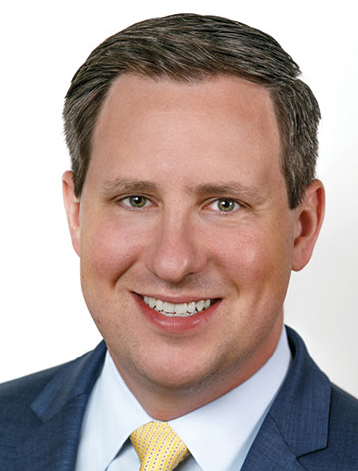
Evan Palumbo, MAAA, FCAS
VP & Actuary, The Toa Reinsurance Company of America
What was your reaction when you heard you were among the inaugural class of Rising Actuary Award winners?
My initial reaction was an overwhelming feeling of gratitude. It is an enormous honor just to have been nominated by my colleagues. To then be recognized by the Academy as well is truly something to appreciate.
Do you have a mentor? Tell me about them.
Yes, my boss Julie Halper. While I have only worked for her for a year, we often joke about how we feel we have known each other for years. The past 12 months have been a career-changing experience for me with what I have learned from her. She leads our team by example and has taught me how to not just be a great actuary, but also how to be a great manager and mentor to others. She will be my biggest defender in public, while at the same time being also my harshest critic in private to help me continue to grow and work to become the best person I can be.
What is one piece of advice that you always give actuaries just starting in their careers?
Learn how to create a schedule and manage your time. The hardest part about starting a career as an actuary is figuring out how to balance studying for exams, and learning a new job, all while still trying to have a life outside of work and be with your family. It’s very easy to get overwhelmed just thinking about it all. Your family and friends are your support system, and they will be there to help you through it all. But it is essential to find balance and compartmentalize your time at work from your time with your family. Make sure you are present, both physically and mentally, for your family so you are able to support them as much as they support you.
Do you see many differences in how different so-called generations—Millennials, Gen Xers, Baby Boomers—go about their work tasks?
Not particularly. Ultimately I see that most people, regardless of generation, just want to do the best job they possibly can at work.
There’s lots of talk about what younger actuaries can learn from experienced actuaries. What about the other way around—what can older folks learn from the younger generation?
Early on in my career I would sometimes hear the phrase “this is how we’ve always done it” with no follow-up explanation. I think the idea that you can always learn something new, at any age, is a valuable way to approach your career—and life in general.
Does the Academy do a good job in speaking for all actuaries? How could the Academy improve in this regard?
Yes, the Academy—through seminars, webinars and practice notes—does a great job of speaking to current and emerging aspects of all actuarial practices. In particular, I’ve noted that professionalism webinars tend to always have a representative from both the CAS and the SOA.
What’s the biggest benefit you’ve derived from your Academy membership?
The Code of Professional Conduct is the gold standard when it comes to professionalism and ethics. Being a member of the Academy means upholding those standards each and every day. My membership in the Academy has instilled in me this mentality and has had a tremendous impact on how I operate in work and in life.
Finally, will we see you at Envision Tomorrow: Annual Meeting 2022?
Yes, of course!
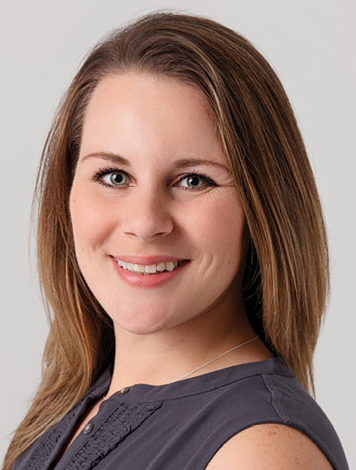
Janessa Sanchez, MAAA, ASA
Actuary Associate, Cambia Health Solutions
What was your reaction when you heard you were among the inaugural class of Rising Actuary Award winners?
It was an honor just to have been nominated. I was thrilled when I learned I’d been selected.
Do you have a mentor? Tell me about them.
I’ve been fortunate to have several great mentors throughout my career. My current managers—Lisa Mudgett, Dan Boeder, and Paul Harmon—have all been great mentors to me. They’re extremely supportive, and I’ve learned a lot working with them.
What is one piece of advice that you always give actuaries just starting in their careers?
It’s normal to feel like you don’t know what you’re doing in the beginning. It’s a very steep learning curve going from college to actuarial work. Don’t assume everyone else has it all figured out, and ask as many questions as you can.
Do you see many differences in how different so-called generations—Millennials, Gen Xers, Baby Boomers—go about their work tasks?
I think different people have different working styles regardless of age, but I haven’t noticed any particular patterns among different generations.
There’s lots of talk about what younger actuaries can learn from experienced actuaries. What about the other way around—what can older folks learn from the younger generation?
I think both generations have a lot to learn from each other. The younger generation can learn from the experience of the older generation, and more experienced actuaries can benefit from fresh new ideas and tools used by younger professionals.
Does the Academy do a good job in speaking for all actuaries? How could the Academy improve in this regard?
I do think the Academy does a good job representing the profession. I’ve been impressed by the public-facing representatives of the Academy and their professionalism and knowledge on a breadth of actuarial topics.
What’s the biggest benefit you’ve derived from your Academy membership?
I get a lot of value out of the Academy webinars. It’s a great way to stay up to date on hot topics and emerging issues.
Finally, will we see you at Envision Tomorrow: Annual Meeting 2022?
Yes! I’m excited to attend.
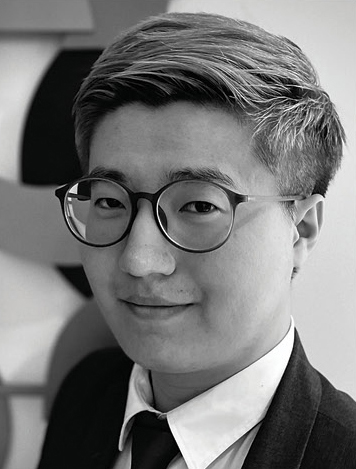
Yixuan Song, MAAA, FSA, MSL
Senior Associate, Mercer
What was your reaction when you heard you were among the inaugural class of Rising Actuary Award winners?
I was pleasantly surprised. Over the course the past few years volunteering with the SOA and the Academy, I had the pleasure of working with many talented rising actuaries. Sooner rather than later, I’m sure all of them will get the recognition for their contributions to the Society and the Academy.
Do you have a mentor? Tell me about them.
I had and continue to have a “board of directors,” a diverse ensemble of former professors, former managers, mentors, and colleagues across different disciplines.
As Susan Stelter writes in a recent Harvard Business Review article[1], “a career board of directors … is a[n] expansive network of individuals who act as independent advisers to you. Just as a company looks to its board for guidance, these people are there to offer you support in a broader sense. Each director usually specializes in a different area. … As such, each is able to offer you advice specific to their expertise.”
Having a plurality of opinions (sometimes conflicting) about any given topic—and in return, helping them talk through topics that are top of their mind—allows all of us to consider and reflect on multiple unique perspectives.
What is one piece of advice that you always give actuaries just starting in their careers?
I always share with people just starting their career, whether actuarial or not, a vignette from the following Guardian article:[2]
In her book, The Top Five Regrets of the Dying—A Life Transformed by the Dearly Departing, Bronnie Ware, a former palliative care worker shares that the five most common regrets by people nearing death were:
“I wish I’d had the courage to live a life true to myself, not the life others expected of me.”
“I wish I hadn’t worked so hard.”
“I wish I’d had the courage to express my feelings.”
“I wish I had stayed in touch with my friends.”
“I wish that I had let myself be happier.”
So, congratulations on working through the challenges of COVID-19 and the great reshuffle—and don’t forget to have fun!
Do you see many differences in how different so-called generations—Millennials, Gen Xers, Baby Boomers—go about their work tasks?
I see less difference between the “generations” than between individuals’ working styles. The ability to communicate well and to flex across different working styles are necessary (but not sufficient) to the success of any team, whatever the generational gap between coworkers.
There’s lots of talk about what younger actuaries can learn from experienced actuaries. What about the other way around—what can older folks learn from the younger generation?
Change is the only constant—be flexible, open to new things, and ever-adaptable.
Does the Academy do a good job in speaking for all actuaries? How could the Academy improve in this?
My interaction with the Academy came only after getting my SOA credentials and convincing my employer that they should pay for another membership fee on top of the SOA dues.
The barriers to even becoming an actuarial student are well documented (and the impetus for the various exam reimbursement programs by both societies).[3] The additional barrier of having to meet additional qualification guidelines (and additional fees) just to be appreciatively aware of the scope of the Academy’s work makes DEI efforts at the Academy even more pressing.
It would have been beneficial to have interactions with the Academy earlier in my career—that earlier outreach and engagement would give the Academy more visibility and more opportunities to nurture the next cohort of “Rising Actuaries.”
What’s the biggest benefit you’ve derived from your Academy membership?
My interactions with so many talented and passionate people—especially on the Health Equity Committee over the past two years. I’m excited for all the work we have planned for the future.
Finally, will we see you at Envision Tomorrow: Annual Meeting 2022?
Yes! Unless circumstances change, I will be a panelist on the Academy’s general session, “Data Analytics: New and Emerging Considerations for Actuaries in the Age of Big Data.”
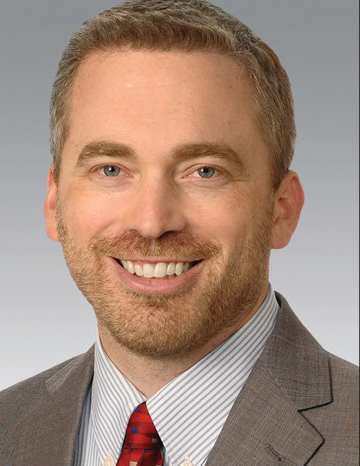
Todd Tauzer, MAAA, FSA, FCA, CERA
Vice President and National Public Sector Retirement Practice Leader, Segal
What was your reaction when you heard you were among the inaugural class of Rising Actuary Award winners?
My initial reaction was a mix of surprise and curious appreciation, as I had never heard of an Academy “Rising Actuary” before. After digesting the meaning (and honor) of it, my next reaction was to thank the nominator who put in the effort in this honor. Thanks Elizabeth Wiley!
Do you have a mentor? Tell me about them.
I have benefited from multiple mentors over time, continuing to this day. My first clear mentor was a supervising actuary at CalPERS, where I started my career, by the name of David Lamoureux. Not only did he approach his work with a sound mind and keen perspective, but he also spent time developing and training me and others beyond what was strictly required by the job. That sense of investment in both the work and the people you work with enhanced our working environment and has been highly valued throughout my career. We’ve taken different paths since then, but we still try to catch up on the tennis court every once in a while!
What is one piece of advice that you always give actuaries just starting in their careers?
I would suggest that while work shouldn’t govern your life, you should always be invested and involved in it (a friend once said, “just—care”). That is the only way to enjoy it, to see the fruits of your labor, to build references and allies, and to generally be satisfied. If you can’t find yourself able to get invested and involved in the current work you’re doing, you should reevaluate your current path.
Do you see many differences in how different so-called generations—Millennials, Gen Xers, Baby Boomers—go about their work tasks?
This is a very over-simplified answer, but I do feel like the younger generations seem to care more about “free time” and things outside of work, while the older generations find more of their identity in work itself. It’s not a black-and-white contrast, but more a question of where on the spectrum one might fall. And while finding much of one’s identity in work can be a valuable characteristic, I also think it makes change and upheaval to the status quo more challenging because of the amount of personal investment already expended there.
There’s lots of talk about what younger actuaries can learn from experienced actuaries. What about the other way around—what can older folks learn from the younger generation?
I have benefitted from a variety of mentor-and-mentee relationships, and the best ones are always a partnership. Diversity of perspective is always advantageous, and in this case the younger generation may bring a different level of energy, different perspectives, different technological abilities, may be able to connect better to younger generations within stakeholders and clients, may be able to think outside the box or simply bring a different box. They also bring the opportunity to create different relationships and connections that may seem difficult to experienced actuaries who can be “set in their ways.”
Does the Academy do a good job in speaking for all actuaries? How could the Academy improve in this regard?
This is a loaded question! My political response is I think the Academy has started to grow in speaking for all actuaries. In the past there have been clear examples of divisive actions internal to the Academy and between different actuarial organizations including the Academy which has tested the confidence many actuaries had in the Academy. But I believe the Board and leadership are working to resolve those differences (where appropriate) and move forward in a more collaborative fashion, so that we can focus more on our mission and all types of members, along with future potential members.
What’s the biggest benefit you’ve derived from your Academy membership?
The biggest benefit to me is participation in Academy committees. I’m currently the chairperson of the Public Plans Committee and am a member of the Pension Practice Council and the Pension Committee, and the amount experience to learn from, the diversity of views, and the camaraderie amazes me. It’s an honor to work with such strong groups of people, and I hope to continue to do so for years to come!
Finally, will we see you at Envision Tomorrow: Annual Meeting 2022?
Yes, I will be at the Annual Meeting on November 2. Unfortunately, I have to fly out that evening for another commitment.
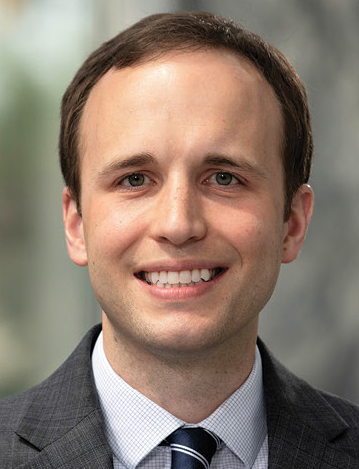
Michael Wise, MAAA, ACAS
Acting Director, South Carolina Department of Insurance (SCDOI)
What was your reaction when you heard you were among the inaugural class of Rising Actuary Award winners?
I was equal parts surprised and excited; this is an incredible honor.
Do you have a mentor? Tell me about them.
Two individuals in particular have had especially significant impacts during my career.
My actuarial mentor is Will Davis. Since his arrival at the SCDOI in 2010, Will has been a great teacher and encourager. From lessons on how to review trend analyses early on to more recent conversations on how claims data has been impacted by COVID-19, Will has always been available to talk. His excitement and passion for actuarial topics know no bounds, and I appreciate him investing in me over the years.
While not an actuary, former SCDOI Director Ray Farmer has mentored and heavily influenced me over the past decade. His leadership style and common-sense approach to problemsolving have helped fundamentally shape me as an employee, a supervisor, and a regulator. I consider myself extremely fortunate to have worked for a living legend in the insurance regulatory community.
What is one piece of advice that you always give actuaries just starting in their careers?
The examination process can be daunting, especially for those just beginning the journey. I encourage anyone committed to a career in actuarial science to persevere through the challenges. To paraphrase a former coach’s words as he watched our team run conditioning drills, many things that are worth doing are far from easy.
Do you see many differences in how different so-called generations—Millennials, Gen Xers, Baby Boomers—go about their work tasks?
The most significant trends I see revolve around communication styles. Millennials seem to gravitate toward email, texting, and instant messaging while Gen Xers and Baby Boomers often utilize more direct methods of contact such as calls and in-person meetings. That said, there are certainly exceptions to this—of which I am one. While often categorized as a Millennial, I generally opt for calls and face-to-face discussions when possible.
There’s lots of talk about what younger actuaries can learn from experienced actuaries. What about the other way around—what can older folks learn from the younger generation?
I believe one area is insurance product design. As Millennials and Generation Z continually constitute a larger portion of the consumer population, insurers should look to actuaries in those generations for assistance in designing products that best fit the needs of those age groups.
What’s the biggest benefit you’ve derived from your Academy membership?
I place immense value on the actuarial standards of practice (ASOPs). Our agency and I personally have utilized guidance from ASOPs on many occasions. These documents are extremely thoughtful and provide assistance on a wide variety of topics.
Finally, will we see you at Envision Tomorrow: Annual Meeting 2022?
Yes, I look forward to attending.
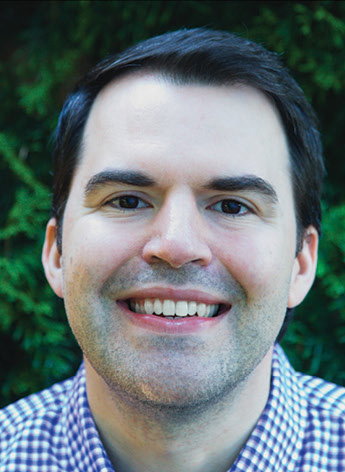
Mike Woods, MAAA, FCAS, CSPA
Actuary, Allstate Insurance Company
What was your reaction when you heard you were among the inaugural class of Rising Actuary Award winners?
I was very excited! I am extremely honored to receive such an award and am grateful for the recognition.
Do you have a mentor? Tell me about them.
Steve Armstrong has been a great mentor to me. He has a long career of volunteering, including being a recent president of the CAS. He has inspired my level of volunteering and shown me the impact that it can have. Having someone around you that shows you what’s possible, and believes in you, is very powerful.
What is one piece of advice that you always give actuaries just starting in their careers?
Try out different roles to see what you like. Rotate often in the beginning of your career. Once you’ve discovered what you like, make a plan and let others know about your plan. Leaders are often accommodating of where you want to go.
Do you see many differences in how different so-called generations—Millennials, Gen Xers, Baby Boomers—go about their work tasks?
Younger actuaries tend to be comfortable communicating completely over text (email or IM) rather than needing in-person or voice communication. Younger actuaries also tend to more frequently view their job as a way to contribute to the greater good (and volunteering is a great way to achieve this!).
There’s lots of talk about what younger actuaries can learn from experienced actuaries. What about the other way around—what can older folks learn from the younger generation?
Younger actuaries have fresh perspectives and offer nontraditional solutions to traditional problems. I would love to see younger actuaries included more frequently in decision-making and for older actuaries to be more open to change.
Does the Academy do a good job in speaking for all actuaries? How could the Academy improve in this regard?
I would love to see more diversity in Academy membership such as more younger actuaries being involved and more actuaries from different backgrounds.
What’s the biggest benefit you’ve derived from your Academy membership?
Networking and learning from actuaries at other companies has been my biggest benefit from my Academy membership.
Finally, will we see you at Envision Tomorrow: Annual Meeting 2022?
Of course! See you there!

References
[1] https://hbr.org/2022/05/want-to-advance-in-your-career-build-your-own-board-of-directors [2] https://www.theguardian.com/lifeandstyle/2012/feb/01/top-five-regrets-of-the-dying2 [3] https://www.soa.org/globalassets/assets/Files/static-pages/about/diversity-inclusion-executive-summary.pdf

